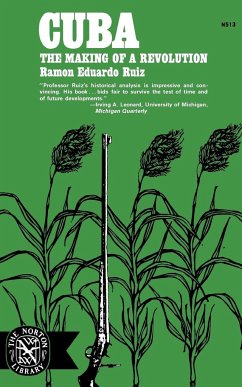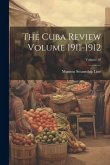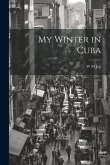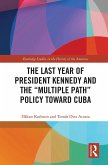Professor Ruiz's analysis begins with Cuba's historic relationship with the United States, examining the effect of the sugar industry and U.S. foreign policy on Cuba's economy, social structure, and political development. He shows how the lack of cohesion in Cuban society affected the courses of events, and analyzes the sources of Cuban nationalism and anti-Americanism. Focusing on issues of economic development and social justice in Cuban history, he traces Cuba's revolutionary tradition and leaders, from the struggle for independence from Spain in the 1890's, through the revolution led by José Marti in 1933, up to Fidel Castro. He takes up the question why--and when--Castro turned to Communism, and discusses the ideology of the Revolution in the perspective of the history of socialist ideas in Cuba. By placing the events of 1959 in the context of Cuban history, Cuba: The Making of a Revolution meets the need for an authoritative analysis of the background of the Revolution, and sheds new light on its causes and outcome.
Bitte wählen Sie Ihr Anliegen aus.
Rechnungen
Retourenschein anfordern
Bestellstatus
Storno








